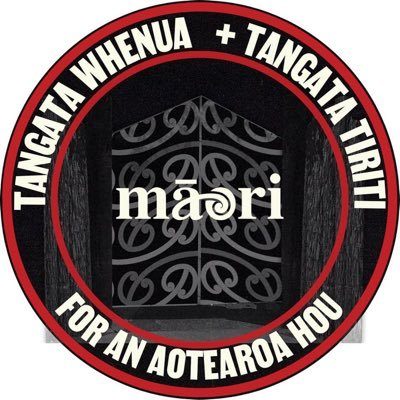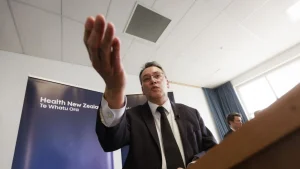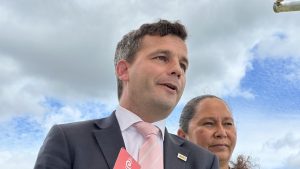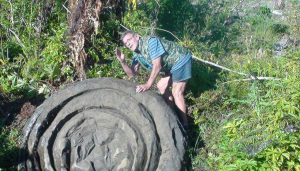
Karanama Ruru
September 14, 2024 • 05:00am
Share

Play Video
3:25
Things New Zealand should know about te reo
VIDEO CREDIT: David White/Stuff
FAST FACTS
- As Te Wiki o te Reo Māori launches, some of its manu kōrero have shared their knowledge and wisdom – and put on their teacher’s pōtae for Puna’s audience.
- Rangatahi at Ngā Manu Kōrero, the national secondary schools speech competition, spoke their favourite whakataukī (proverbs), kīanga (sayings) and kīwaha (colloquialisms).
- The theme of kotahitanga reigned supreme – with one teenager saying it shouldn’t be left to only one person, like the late Māori King, to lead the charge.
Decades after the petition that sparked Te Wiki o te Reo Māori, a group of young reo stars show reporter Karanama Ruru that wisdom and knowledge of the language are alive and well.
Te Wiki o te Reo Māori begins exactly 52 years since the Māori Language Petition was presented to Parliament.
Over half a century later, rangatahi carry the same optimism for the future of te reo Māori, and for many of these young people, a strong belief in kotahitanga.
At Ngā Manu Kōrero, the finals of the national secondary schools reo and English speech competition, students spoke to Puna about what Te Wiki o te Reo Māori means to them, shared their favourite whakataukī (proverbs), and what New Zealand should know about te reo.
It was a cold day as akonga (students) from schools across Aotearoa gathered at Auckland’s Spark Arena which, for two days, had been humming with the exciting oratory of our future leaders.
Nikau Irika, 17, wanted to let Aotearoa know that te reo Māori was growing.
Stuff
Nikau Irika, 17, wanted to let Aotearoa know that te reo Māori was growing.
“Seeing more of our rangatahi speak te reo, I’ve been hearing it everywhere I go, which is really cool,” he said.
Nikau’s favourite whakataukī was ehara taku toa i te toa takitahi, engari he toa takitini. My success is not mine alone, but it is the strength of many.
“Going to an all-boys school, we have a very strong brotherhood. We all work together which is really cool to see.”
Ngakorowai Tihore-Moke, 17, from Te Wharekura o Kirikiriroa, wanted wider Aotearoa to simply chill out a little about te reo Māori.
“I don’t know why so many people are pressed about it. Like it’s so beautiful to hear, to say, speak te reo Maori … To anyone in Aotearoa, whether you’re Maori or not – learn it, speak it, because it’s beautiful,” she said.
“It should be heard everywhere, everywhere. Not just in Aotearoa too, like in different countries.”
“Tēnei te tira hou, e haere ake nei” was her favourite whakataukī.
Kyah Taylor, from Te Kura Kaupapa Māori o Ngā Maungarongo, said she wanted everyone in New Zealand to learn about tīkanga and te reo Māori.
Stuff
“It means ‘the new generation, here we come’. I know my generation, this generation, is going to fight, and keep fighting till we die.”
Herschelle Jacobs, 13, said people around Aotearoa shouldn’t be afraid to speak te reo – “our language forever”.
Herschelle’s favourite whakataukī was also ehara taku toa i te toa takitahi, engari he toa takitini.
“All of us could be stepping up for te reo Māori, not leaving it to one person like Kīngi Tūheitia… we could step up for the language.”
Kyah Taylor, from Te Kura Kaupapa Māori o Ngā Maungarongo, said she wanted everyone in New Zealand to learn about tikanga and te reo Māori.
“I think we, as people from Aotearoa, we should all learn tikanga Māori, mau ki tō mita o tō iwi,” she said. (Pay heed to the dialect of your iwi.)

Her favourite kīwaha was “wēhi nā”, which she likened to “chur ghee”.
Teuamairangi Webster-Tarei, 13, emphasised the importance of kotahitanga.
“There’s this whakataukī, whakapūpūtia ngā rakau kia kore ai e whati – bundle up together so we are unbreakable, that’s pretty much saying, kotahitanga, sticking together, moving as one, succeeding through anything, whenever, wherever.”
From the mouths of rangatahi
Here are some of the favourite whakataukī and kīwaha shared by the rangatahi.
- Whakapūpūtia ngā rakau kia kore ai e whati. There’s strength in unity.
- Ehara taku toa i te toa takitahi, engari he toa takitini. Success doesn’t come from the individual, but from the many.
- Tēnei te tira hou, e haere ake nei. A new generation is rising.
- Wēhi nā! Chur ghee!





